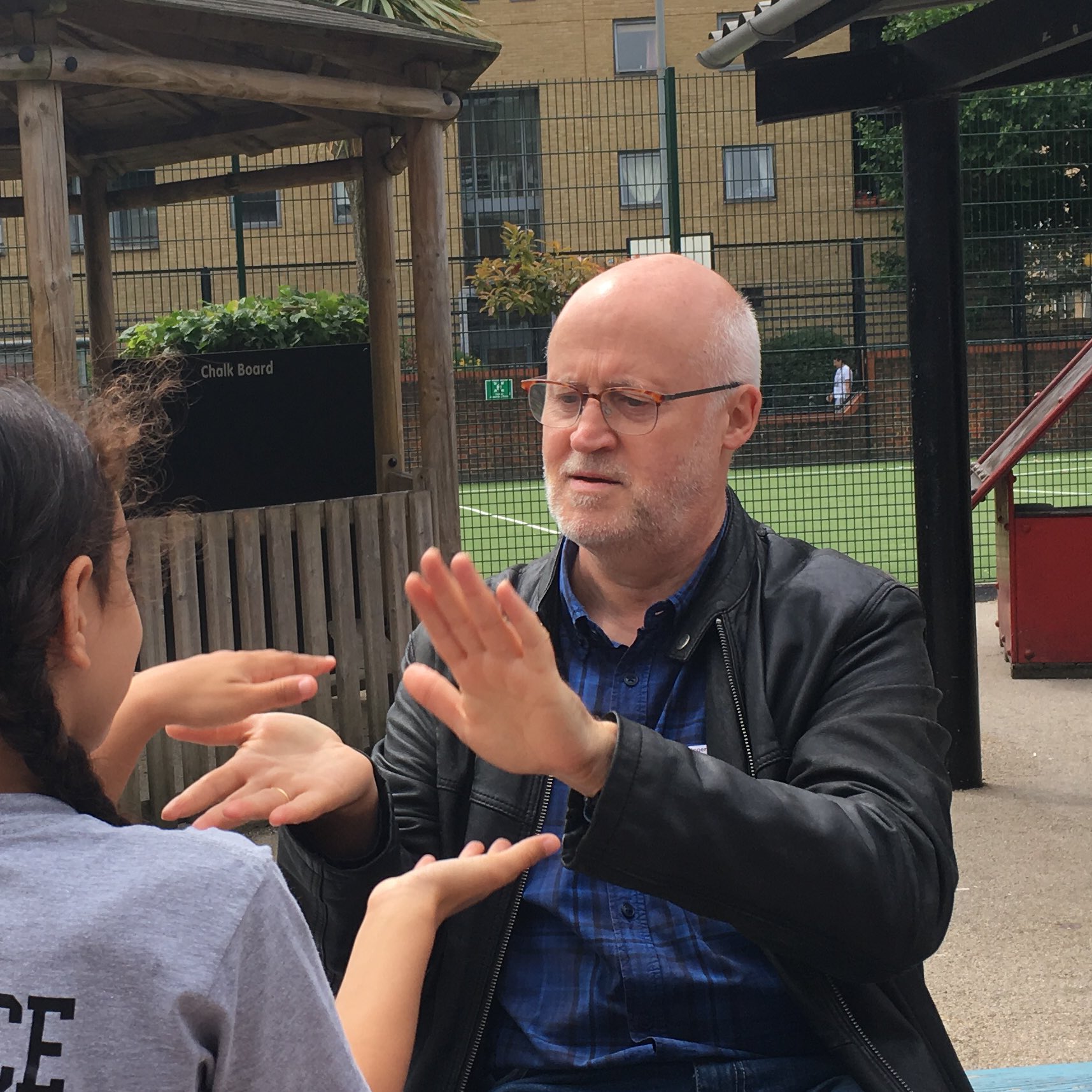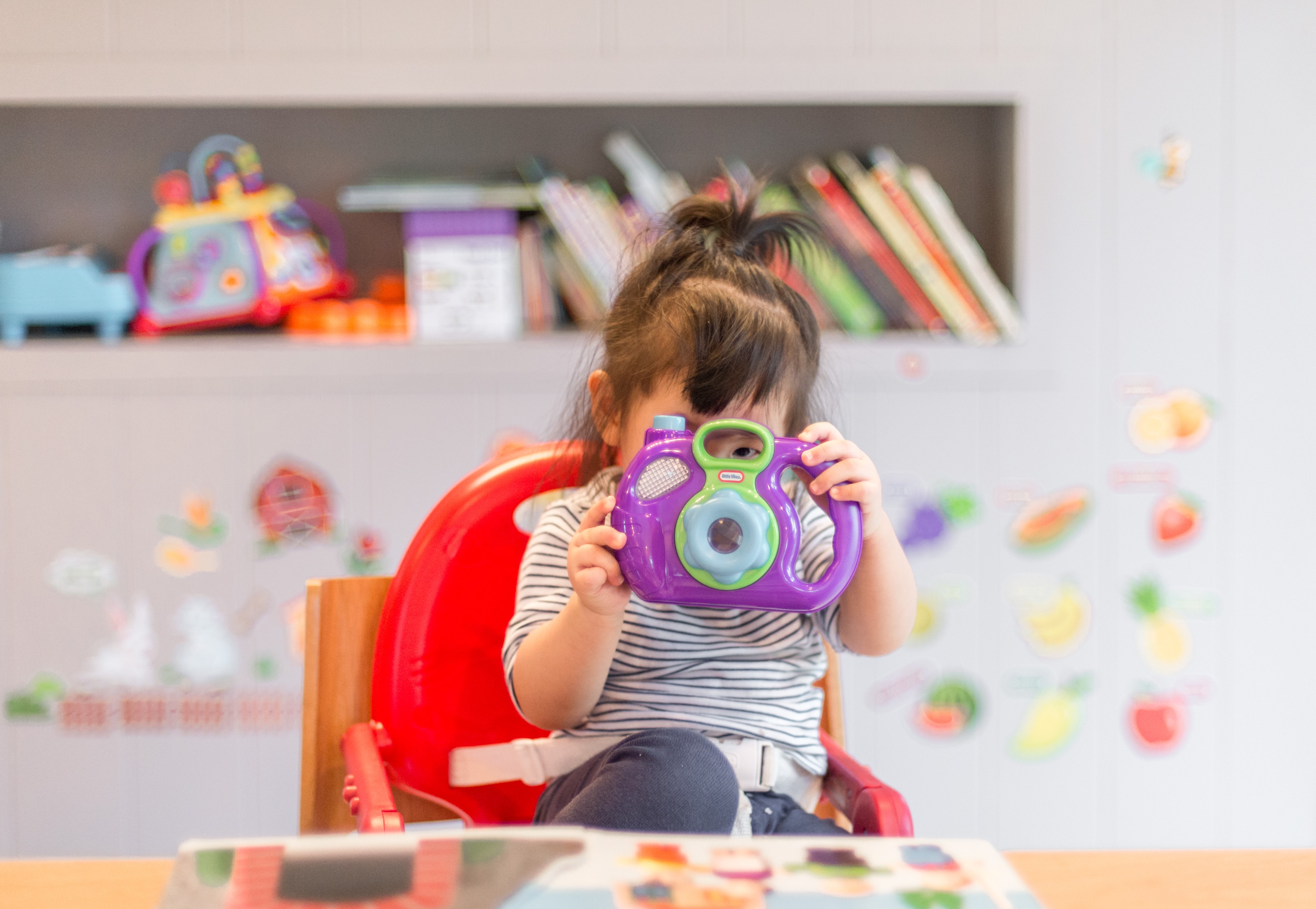Launching the Play Observatory case studies
Kate Cowan shares some of the research methods the Play Observatory is using to research online with children.
It’s an exciting week for the Play Observatory as we begin a new phase of the project. As well as continuing our ongoing survey, we are also beginning our case studies with children.
Before the pandemic, our research usually involved visiting schools and talking to children in-person about their play and games. For previous projects, such as Playing the Archive, we spent time in school playgrounds, watching playtimes, taking photographs, videos and audio recordings (often with the help of children themselves) and would collect drawings and things the children had made.
 Professor Andrew Burn learning clapping games from the experts during ‘Playing the Archive’ fieldwork
Professor Andrew Burn learning clapping games from the experts during ‘Playing the Archive’ fieldwork
With schools closed for much of the last year and ongoing rules about social distancing, we have inevitably had to adapt our usual research methods. How can we continue to listen to children and include their experiences in our research throughout the pandemic?
We have designed the Play Observatory to be mainly online. As well as responding to the pandemic’s restrictions and ongoing uncertainties, this has the advantage of being able to include children all across the UK (and beyond). The survey is designed to be as child-friendly as possible, so that children can complete it with a bit of support from an adult, or so that adults can upload examples on behalf of children. Recognising that not all families have equal access to the internet and digital devices, it is also possible to contribute to the survey by post.
 We are keen to hear from children themselves about their own views, and as researchers of their own experiences
We are keen to hear from children themselves about their own views, and as researchers of their own experiences
We are now developing a second strand of our research alongside the survey, beginning a series of online case studies with children and young people that will help us find out more details about play during and beyond the pandemic.
The case studies will include online discussions with children and their families over Zoom, a drawing/mapping activity and an invitation for children to create a short film about their experiences of play in a pandemic. We hope these multimodal methods will help children express their experiences in a variety of ways. We also hope to make the research itself playful – there are no right or wrong answers and we are interested in all kinds of examples of play.
Along with the survey, the things children tell us and create will form part of a collection that will help future generations understand what this unique period was like for young people. The children involved in the case studies will also be invited to help us design the project’s exhibition and other outputs.
Do you know a child who might like to be part of our case studies?
We’re looking for young people based in the UK who are aged 0-18 who might like to share their experiences of playing throughout the pandemic, with the help of a parent/carer as appropriate. We are interested in hearing from children all over the country and from a variety of backgrounds.
Please email info@play-observatory.com to express interest, for more information or to ask any questions.
You can also help our research by responding to our ongoing survey.



